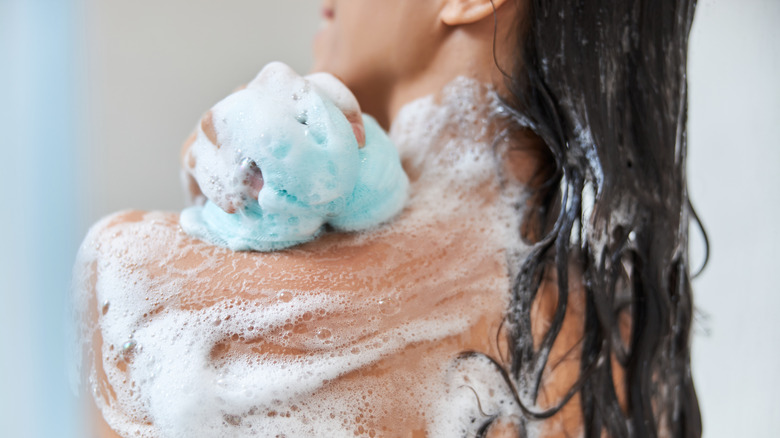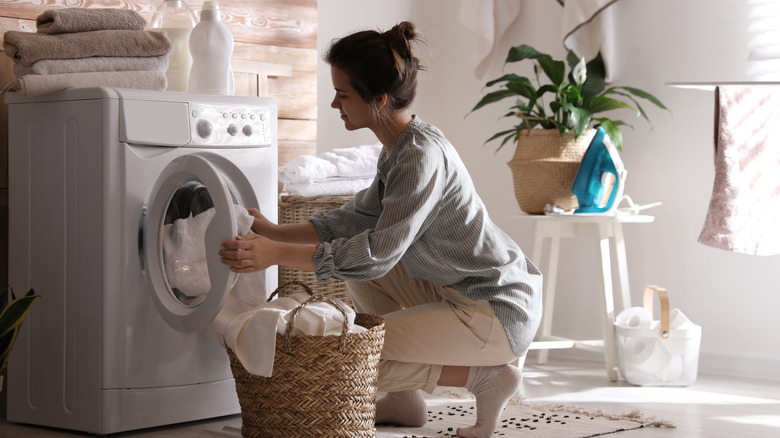Is It Safer To Use A Loofah Or Washcloth In The Shower?
There's nothing better than the refreshed feeling after taking a bath or shower. You might use a loofah or washcloth to help you get squeaky clean, but is one actually safer than the other?
It turns out that both have the potential to be unsafe. Loofahs, either spongy or plastic kind, can harbor bacteria. After you shower, the dead skin cells you slough away can become lodged in the hundreds of gaps on a loofah, creating a breeding ground for bacteria, dermatologist Melissa Piliang, M.D., told Cleveland Clinic. Because you use them in a wet environment and keep them there, they never completely dry out, she explained. The next time you bathe, you could spread germs all over your skin.
Washcloths might be a better choice, but only if you use a fresh one every time you bathe. Dermatologist Alok Vij, M.D., told Self magazine that the more you reuse a damp washcloth, the greater the chances are for bacteria to not only grow but also spread. Just like with loofahs, you can spread bacteria around with an old washcloth.
Safety tips for loofahs and washcloths
The good news is that you don't have to give up using either if you take precautions and regularly clean and replace your favorite bathing accessory.
Your loofah should dry completely in between uses. After you shower, hang it somewhere outside your bathroom. In addition, you should soak it weekly in a mixture of water with 10 percent bleach for about five minutes before rinsing and allowing it to dry. Never share a loofah with someone else.
You should replace a plant loofah every three to four weeks and a plastic one every two months, Piliang told Cleveland Clinic. Any bad odors or mold are a sign you should get rid of it right away.
Washcloths are a different story, and should be washed after every use (via Healthline). That being said, Vij noted that unless you have a compromised skin barrier, weakened immune system, or an abrasion, you may never have a negative reaction from using the same washcloth repeatedly.


